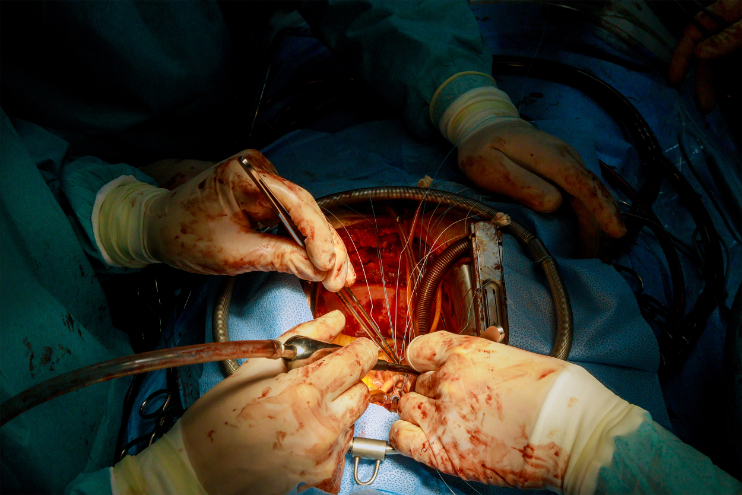-
Products
-
- Featured Products
- Supraflex Cruz
-
- Professionals
- Patients & Caregivers
- About SMT
Main navigation
What are the symptoms?
- Shortness of breath
- Dizziness or fainting
- Chest pain
- Feeling tired or fatigued
- Swelling in your legs

- Age
- Genetic Predisposition
- Rheumatic Heart Disease
- Radiation Exposure
Diagnosis typically involves a combination of Physical Examination with the following diagnostic procedures:
- Echocardiography
- Catheterization
- Chest X-ray
- CT Scan
Treatment depends on the severity of the condition:
Monitoring: Mild cases may be monitored with regular echocardiograms and clinical follow-ups.
Medications: While there are no medications to reverse aortic stenosis, drugs like beta-blockers or ACE inhibitors can help manage symptoms or reduce the heart's workload.
Surgical Aortic Valve Replacement (SAVR): The traditional treatment for severe aortic stenosis involves open-heart surgery to replace the damaged valve with a mechanical or biological prosthesis.

Transcatheter Aortic Valve Implantation (TAVI): A less invasive alternative to surgery, TAVR involves inserting a new valve via a catheter, usually through the femoral artery, and positioning it within the diseased valve.

Balloon Valvuloplasty: In some cases, especially in younger patients or those not suitable for surgery, a balloon is inflated within the valve to widen it temporarily. However, this is usually a bridge to other treatments rather than a permanent solution.
Disclaimer:
The information provided here is for general informational and educational purposes only and is not intended to serve as medical advice or guidance for the treatment of any specific condition or illness. While we strive to ensure accuracy, medical knowledge is continually evolving, and the content provided here may not reflect the most up-to-date research or medical practices.
This content should not be used as a substitute for professional medical diagnosis, advice, or treatment. Always seek the advice of your physician or other qualified healthcare provider with any questions you may have regarding a medical condition or treatment. The use of any information provided here should be at your own risk. We do not assume any liability for the decisions you make based on this information. For personalized medical advice, please consult a licensed healthcare provider.
- American Heart Association - AHA : https://www.heart.org/
- European Society of Cardiology - ESC : https://www.escardio.org/
- American Cardiology College - ACC : https://www.cardiosmart.org/
- Nutrition : https://www.mayoclinic.org/diseases-conditions/heart-disease/in-depth/heart-healthy-diet/art-20047702
- Exercise : https://www.mayoclinic.org/tests-procedures/cardiac-rehabilitation/about/pac-20385192


